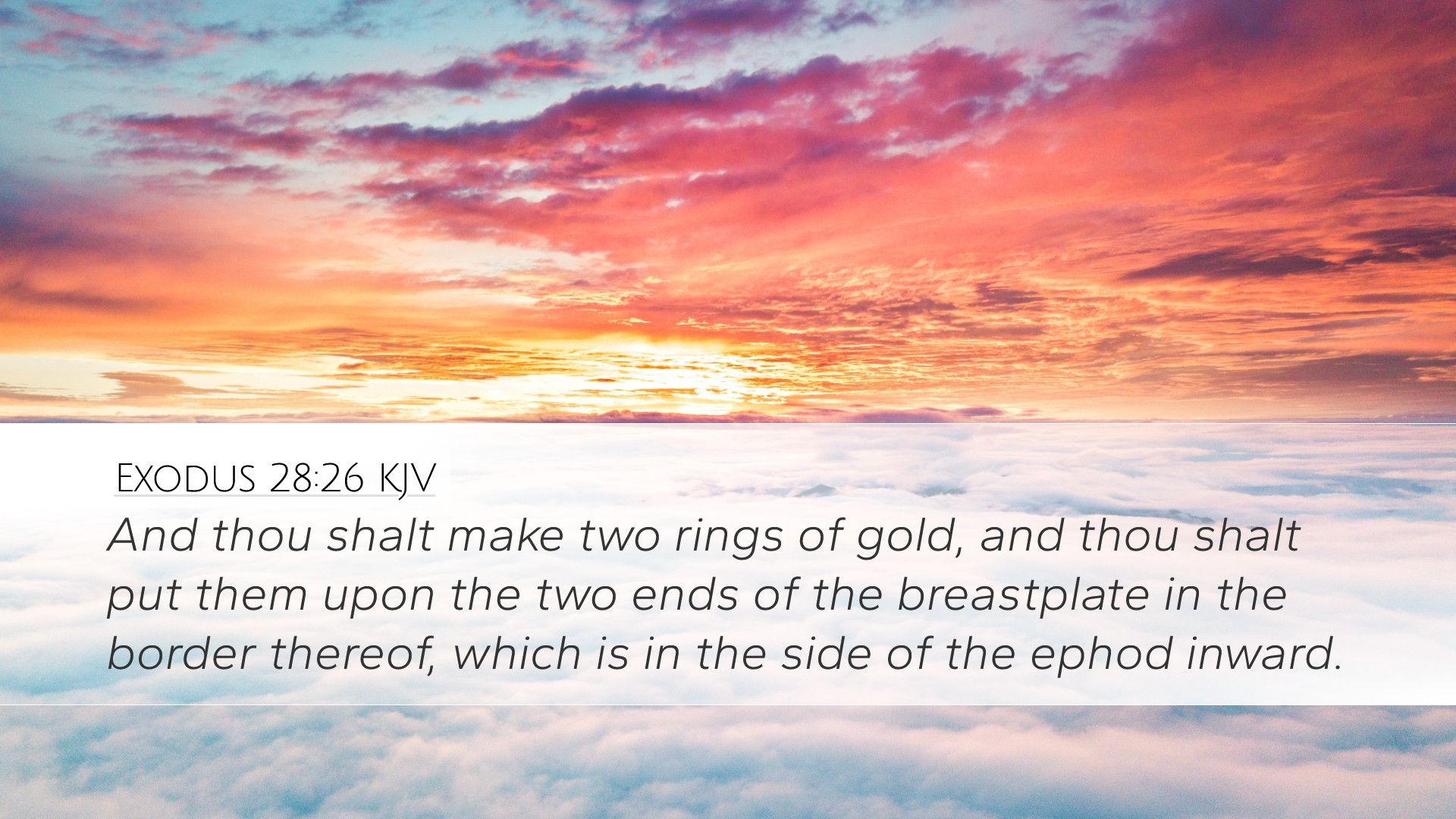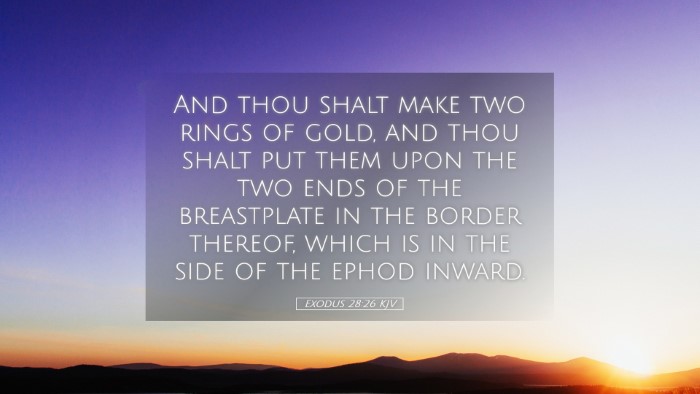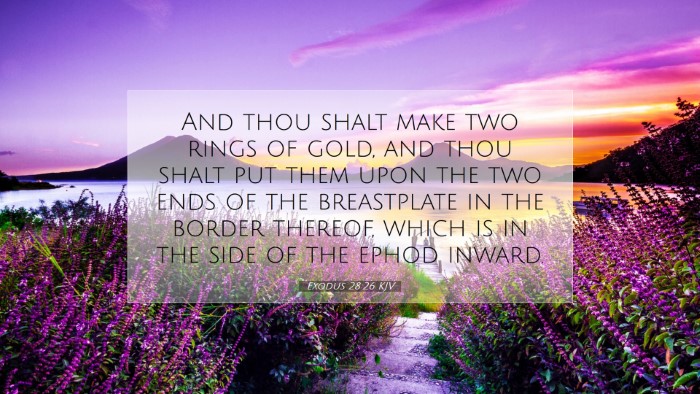Commentary on Exodus 28:26
Verse Reference: Exodus 28:26
Text: "And you shall put the two stones on the shoulder pieces of the ephod, as memorial stones for the sons of Israel. And Aaron shall bear their names before the Lord on his two shoulders as a memorial."
Introduction
This verse is part of the detailed instructions given to Moses regarding the priestly garments, particularly the ephod worn by Aaron, the High Priest. The mention of the stones signifies the importance of representation and remembrance in the priestly function.
Significance of the Ephod
The ephod is a key element in the ceremonial attire of the High Priest. In the public domain commentaries, the ephod is seen as symbolic of the role of the priest as an intermediary between God and His people. Matthew Henry emphasizes how the ephod served as a means for the High Priest to carry the names of the tribes of Israel before God, reflecting the weight of responsibility he bore for the people.
Albert Barnes elaborates that the ephod consisted of two principal parts and was woven of fine linen and adorned with gold. The shoulder pieces represent strength and support, demonstrating how the priest’s duties are to encompass and uphold the nation of Israel.
The Stones of Remembrance
In verse 26, the two stones placed on the shoulder pieces are significant both symbolically and practically. Adam Clarke notes that each stone bore the names of six tribes of Israel, and as such, they served as a reminder of God's covenant with His people. The stones represent the totality of Israel’s representation before God.
Henry also points out that memorials are a practice reflected throughout Scripture, illustrating God's desire for His people to remember His acts and promises. The physical presence of these stones is a tangible reminder of God's enduring covenant with Israel.
Aaron’s Role as Mediator
Aaron’s bearing of the names signifies a priestly mediation. Albert Barnes emphasizes the gravity of this role, indicating that Aaron did not simply carry names; he brought them into the presence of God. This act represents how believers today have another High Priest, Jesus Christ, who intercedes on their behalf before God.
Henry quaintly notes that through Aaron, all of Israel found representation, meaning the priest's responsibilities were not solely administrative but were deeply spiritual, serving the community as an advocate before God.
Theological Implications
From a theological viewpoint, this passage highlights the importance of representation and intercession in the relationship between God and His people. Clarke imports that the wearing of these stones by Aaron symbolizes the necessity of being held accountable to God by representing the people properly. This concept can be extrapolated to consider the contemporary Christian's role and responsibility within the body of Christ.
The memorial aspect of this act also speaks to the nature of collective identity within God's kingdom. Believers are encouraged to remember their roots in faith and the collective nature of their journey as God's chosen people.
Practical Applications
For modern pastors, theologians, and students of the Bible, this passage is rich with applications. The concept of carrying burdens or representing others before God echoes in many areas of ministry and personal spiritual life. The act of intercession for others is a model exemplified by Aaron's role, urging contemporary believers to act likewise in prayer and support.
- Intercession: Just as Aaron brought the names of the tribes before God, believers are called to lift each other up in prayer, interceding for the needs of the community.
- Representation: Understanding one's role as an ambassador of Christ can encourage believers to live in a way that faithfully reflects the character and love of God to others.
- Remembrance: Engaging in practices that remember God’s faithfulness, such as communion or personal testimonies, can serve to strengthen the community of faith.
Conclusion
Exodus 28:26 not only provides an insightful glimpse into the rituals of the ancient Israelites but also lays foundational truths that echo through the ages. By appreciating the roles, symbols, and meanings within this verse, modern readers can gain a deeper understanding of their relationship with God and their responsibilities to one another in faith.


